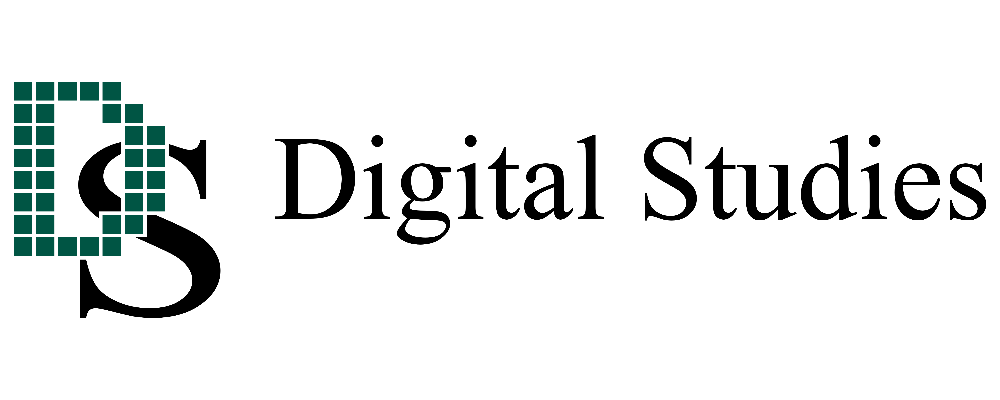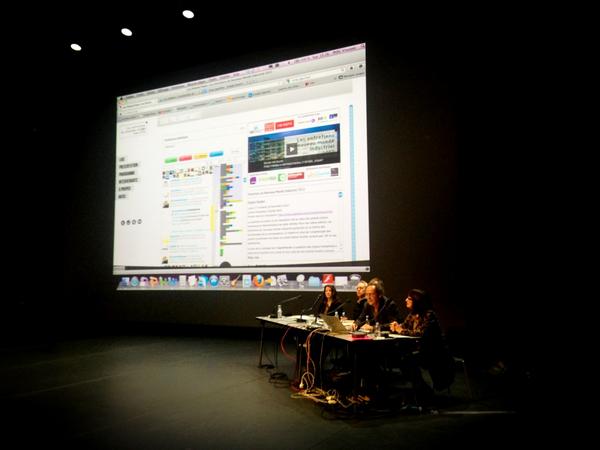The call for digital studies was written by Bernard Stiegler during the 2012 edition of the New Industrial World Forum :
Within the framework of the New Industrial World Forum held annually at Centre Pompidou for the last 5 years, the Institute for Research and Innovation will dedicate the upcoming 2012 forum on 17th and 18th of December to the question of Digital Studies.
Digital technology is a new form of writing and access to writings (in this respect it is also a new form of reading): digital technology is the optical-electronic, industrial and largely automatized form of writing shaped, edited, broadcast, and read with the help of the automation that functions at the speed of light.
Digital technology is in this respect an “intellectual technology” in the sense of Jack Goody, in which the industrialization, automation, and performance of speed radically transform the conditions of la vie de l’esprit in all aspects: psycho-affective, economical, geopolitical, social, cultural, artistic, intellectual, and scientific.
Writing, in whatever form it is, is constituted by a finite ensemble of traces and rules of combination for these traces. Yet all human societies can be described as a regime of traces: the inscription, exteriorization, and interiorization of traces constitute the material culture of la vie de l’esprit, even since the origin of humanization.
Optical-electronic writing overturns the previous regime of traces by establishing on a planetary level a generalized industrial traceology (tracéologie), which becomes the foundation of industrial life everywhere in the world. Moreover, beyond these empirical effects, this upheaval also puts at stake the topics which have organized the question of knowledge (connaissance), which both in the past and in more recent times traverses philosophy and epistemology, and in particular traverses various diverse cognitive paradigms.
Referring to the works of Stanislas Dehaene, many other thinkers, such as Walter Ong and Maryanne Wolf, have emphasized the elements of continuity and the elements of rupture between alphabetic writing and digital technology with regard to their effects on cerebral organization. As Walter Ong spoke of the literal mind, a conception of the mind which constitutes a counterpart of graphical reason and intellectual technologies according to the conception of Jack Goody, Maryanne Wolf interrogates the conditions of the passage from the reading brain to the digital brain. Such a question can only be posed because the psychological and cerebral becoming is irreducibly linked to the becoming of the traceological and technical becoming, not only biological.
The process of ongoing digitization therefore raises radical questions concerning the future of the human cerebral organization as well as the future of sciences that evolve structurally and noetically (at heart of their intellectual vocation) in function to this techno-traceological becoming, that is to say organological in the sense where, in musicology, the organology studies the becoming of the instruments which are not evidently simple means for the musicians. One could also say that an organology of reason (that is to say the knowledge (savoir) constituted according to the canons of rationalities) is about the place taken by the analysis of data, visualization, and simulation in the sciences developed in the age of “digital reason” and not only the “graphical reason” of Goody.
Therefore essential to all the disciplines in all their dimensions is the question of what status is to be given to technics in the human becoming, and in the becoming of knowledge by which the human knows something about himself, and which, by virtue of not being himself, is his condition: the question imposed by digitization (such as that of the passage from a literal brain to a digital brain) is posed well before that of digitization itself – as if it is due to the radical experience of the traceological upheaval provoked by digitization that these questions that now appear to us become unavoidable.
This is why digital studies should not be limited to the study of digital technologies: their general object would be the study of technics and intellectual technologies in general from the angle of their effects on all knowledge in general. In this sense, rather than digital studies, it would be without a doubt better to talk of knowledge studies (“studies” in plural form denoting a specific relation regarding epistemology which, other than studying scientific knowledge (savoir) and understanding (connaissance), is conceived from the outset as a discourse unified by a pure logos of all technicity).
Hence knowledge studies would propose in principle – and as their common position – that the study of knowledge is not soluble to that of cognition, as all knowledge and understanding supposes, at the same time, being able to transmit and transform a technical artifactuality is essential to what Georges Canguilhem described as the form of technical life.
In technical life, the conditions of vital subsistence as well as the social existence of the individual are constituted essentially by their artifacts, that shift and complicate significantly the questions posed by the term “cognition” in the sense that the various cognitivisms agree with, that is to say the reduction to behavior of an individual in its milieu (this individual could itself be an artifact, but cognitivism didn’t consider the status of the artifact in technical life from the very beginning).
The principle goal of this conference held on the 18th and 19th of December is to open up a public and international scientific debate on the status of digital technologies in contemporary societies and those socieities to come, and based on this debate to bring forth an international collective of exchanges and contributions on digital studies (or knowledge studies) thus understood.
This collective would constitute an international community that shares the initial thesis and explores in common the hypothesis (everyone by his/her specialty, or from his/her point of view, or in a specific field, etc.) by acquiring fairly easily and inexpensively various means and consuming little time, but allowing the maintenance of an on-line forum, organizing conferences at regular intervals and online seminars, and, where appropriate, to publish collectively our contributions.
The creation of this common website is beginning to be easily realized, taking advantage of the new possibilities offered by digital technologies to set up an environment for editorial support. Every participant can publish on this website works that he or she wants to share with others.
Bernard Stiegler

